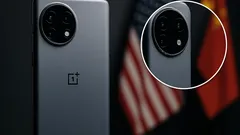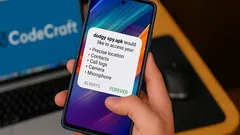162
10
4 minutes
Suggested Articles

OnePlus Faces Major Security Investigation Shaking Up U.S. Smartphone Market
Discover why OnePlus faces a major security investigation in the U.S., what it means for smartphone users, and what you should watch for when buying safe tech devices.

Hacker exposed after spying on families through parental control apps
Online Safety & Privacy

Your Smartphone May Be Secretly Hacked: Spot the Warning Signs Now
Smartphones & Apps

Why taping your smartphone camera could be your simplest privacy upgrade
Smartphones & Apps

Invisible interface hack puts millions of Android phones at risk
Online Safety & Privacy

5 Hidden Signs Your WhatsApp Is Being Watched and How to Stop It Now
Online Safety & Privacy

Gemini AI on Android is quietly reshaping your privacy boundaries
Smartphones & Apps

Hundreds of Malicious Apps Lurk on Google Play—How to Protect Your Data
Online Safety & Privacy

Unlock the hidden phone setting that protects your bank account from scammers
Online Safety & Privacy

Gmail’s new rules protect your inbox from scams and phishing tricks
Online Safety & Privacy

Playing video games together strengthens relationships and sparks real connection
AI & Everyday Tech

US crypto pioneers transform bold risk into life-changing fortunes
AI & Everyday Tech

Tech leaders embrace waste-to-carbon solutions as Microsoft bets big on green AI
AI & Everyday Tech

Travelers and campers embrace portable backpack laundry tech for freedom and clean clothes anywhere
Gadgets & Reviews

Sleep experts champion a smart anti-snoring belt for restful nights and healthier mornings
Gadgets & Reviews

Drivers use Google Maps and Waze to avoid fines but risk safety trade-offs
AI & Everyday Tech

App lovers seize this week’s best free premium downloads before time runs out
Smartphones & Apps
 W3 CodeCraft
W3 CodeCraft

Comments